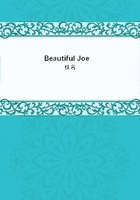
第1章 INTRODUCTION
The wonderfully successful book, entitled "Black Beauty," came like a living voice out of the animal kingdom. But it spake for the horse, and made other books necessary; it led the way. After the ready welcome that it received, and the good it has accomplished and is doing, it follows naturally that some one should be inspired to write a book to interpret the life of a dog to the humane feeling of the world. Such a story we have in "Beautiful Joe."The story speaks not for the dog alone, but for the whole animal kingdom. Through it we enter the animal world, and are made to see as animals see, and to feel as animals feel. The sympathetic sight of the author, in this interpretation, is ethically the strong feature of the book.
Such books as this is one of the needs of our progressive system of education. The day-school, the Sunday-school, and all libraries for the young, demand the influence that shall teach the reader how to live in sympathy with the animal world; how to understand the languages of the creatures that we have long been accustomed to call "dumb," and the sign language of the lower orders of these dependent beings. The church owes it to her mission to preach and to teach the enforcement of the "bird's nest commandment;" the principle recognized by Moses in the Hebrew world, and echoed by Cowper in English poetry, and Burns in the "Meadow Mouse,"and by our own Longfellow in songs of many keys.
Kindness to the animal kingdom is the first, or a first principle in the growth of true philanthropy. Young Lincoln once waded across a half-frozen river to rescue a dog, and stopped in a walk with a statesman to put back a bird that had fallen out of its nest. Such a heart was trained to be a leader of men, and to be crucified for a cause. The conscience that runs to the call of an animal in distress is girding itself with power to do manly work in the world.
The story of "Beautiful Joe" awakens an intense interest, and sustains it through a series of vivid incidents and episodes, each of which is a lesson. The story merits the widest circulation, and the universal reading and response accorded to "Black Beauty." To circulate it is to do good, to help the human heart as well as the creatures of quick feelings and simple language.
When, as one of the committee to examine the manuscripts offered for prizes to the Humane Society, I read the story, I felt that the writer had a higher motive than to compete for a prize; that the story was a stream of sympathy that flowed from the heart; that it was genuine; that it only needed a publisher who should be able to command a wide influence, to make its merits known, to give it a strong educational mission.
I am pleased that the manuscript has found such a publisher, and am sure that the issue of the story will honor the Publication Society. In the development of the book, I believe that the humane cause has stood above any speculative thought or interest. The book comes because it is called for; the times demand it. I think that the publishers have a right to ask for a little unselfish service on the part of the public in helping to give it a circulation commensurate with its opportunity, need, and influence.
HEZEKIAH BUTTERWORTH.
(Of the committee of readers of the prize stories offered to the Humane Society.)